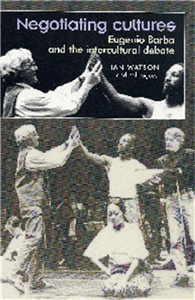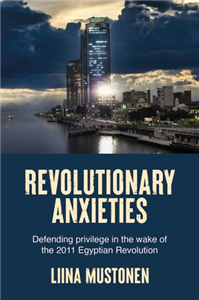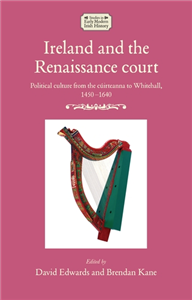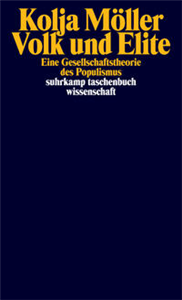Your Search Results
-
Promoted ContentHumanities & Social SciencesApril 2026
Elites in civil society
A comparative perspective
by Niklas Altermark, Malin Arvidson, Jayeon Lee, Roberto Scaramuzzino
Where civil society is often seen as a driving force for equality, this book addresses a challenging topic: civil society elites. Drawing on a comprehensive study of Italy, Poland, Sweden, and the UK, this ground-breaking research investigates the often-overlooked power structures within civil society. By combining elite studies with civil society research, the book uncovers how a distinct civil society elite emerges and how it interacts with leaders in politics and business. The findings reveal a fascinating paradox. While this elite may be a powerful engine for social change, its integration into wider power circles risks reproducing the very inequalities it seeks to dismantle. By exploring how this elite can become disconnected from its grassroots, the book provides essential insights into the future of civil society and its democratic promise.
-
Promoted ContentHumanities & Social SciencesApril 2023
The fall and rise of the English upper class
Houses, kinship and capital since 1945
by Daniel R. Smith
The fall and rise of the English upper class explores the role traditionalist worldviews, articulated by members of the historic upper-class, have played in British society in the shadow of her imperial and economic decline in the twentieth century. Situating these traditionalist visions alongside Britain's post-Brexit fantasies of global economic resurgence and a socio-cultural return to a green and pleasant land, Smith examines Britain's Establishment institutions, the estates of her landed gentry and aristocracy, through to an appetite for nostalgic products represented with pastoral or pre-modern symbolism. It is demonstrated that these institutions and pursuits play a central role in situating social, cultural and political belonging. Crucially these institutions and pursuits rely upon a form of membership which is grounded in a kinship idiom centred upon inheritance and descent: who inherits the houses of privilege, inherits England.
-
 Trusted Partner
Humanities & Social SciencesApril 2020
Trusted Partner
Humanities & Social SciencesApril 2020The British political elite and Europe, 1959-1984
A higher loyalty
by Bob Nicholls
This book offers an original interpretation of Britain's relationship with Europe over a 25 year period: 1959-84 and advances the argument that the current problems over EU membership resulted from much earlier political machinations. This evidence based account of the seminal period analyses the applications for EEC membership, the 1975 referendum, and the role of the press. Was the British public misled over the true aims of the European project? How significant was the role of the press in changing public opinion from anti, to pro Common Market membership? Why, after over 40 years since Britain became a member of the European community, does the issue continue to deeply divide not only the political elite, but also the British public? These, and other pertinent questions are answered in this timely book on a subject that remains topical and highly controversial.
-
 Trusted Partner
Literature & Literary StudiesJune 2002
Trusted Partner
Literature & Literary StudiesJune 2002Negotiating cultures
Eugenio Barba and the intercultural debate
by Maria M. Delgado, Ian Watson, Maggie B. Gale, Peter Lichtenfels
Eugenio Barba is one of the world's leading theatre artists and theorists working across cultures. Examines three major strands of Barba's work; his research at the International School of Theatre Anthropology, his use of performance as a means of exchange, and his ongoing relationship with Latin America. The artists who write and are interviewed in the book provide an invaluable insight into Barba's work methods, his relationship with performers from different cultures, and the ramifications of his research in a variety of performance forms. Concludes with a dialogue between Barba and Ian Watson. ;
-
 Trusted Partner
Trusted Partner
-
 Trusted Partner
Humanities & Social SciencesMarch 2026
Trusted Partner
Humanities & Social SciencesMarch 2026Revolutionary anxieties
Defending privilege in the wake of the 2011 Egyptian Revolution
by Liina Mustonen
Revolutionary anxieties sheds light on an unexplored dimension of the 2011 Egyptian revolution: the anxieties experienced by Cairo-based liberal elite, socialites, and cultural actors who opposed the rise of the new political actors, the Muslim Brotherhood. This book provides fresh insights into the failure of the Egyptian revolution by examining the perspectives of those who had a vested interest in maintaining the status-quo. It engages with post-colonial theory and examines the elite milieu in Cairo through the lenses of gender and race. Based on over two years of ethnographic research in various elite locations such as the Cairo Opera House, an Egyptian-European film festival, and an elite sporting club in Cairo, the book illustrates how members of Egyptian liberal upper class insisted on their privilege in a moment when the country's class hierarchies were challenged. By revealing the prevalence of counter-revolutionary sentiment among Cairo's liberal and affluent elite, the book tells an untold story of the Arab Spring.
-
 Trusted Partner
March 2015
Trusted Partner
March 2015Sprachlose Elite?
Wie Unternehmer Politik und Gesellschaft sehen
by Herausgegeben von Marg, Stine; Herausgegeben von Walter, Franz
-
 Trusted Partner
Humanities & Social SciencesAugust 2024
Trusted Partner
Humanities & Social SciencesAugust 2024Ireland and the Renaissance court
by David Edwards, Brendan Kane
Ireland and the Renaissance court is an interdisciplinary collection of essays exploring Irish and English courts, courtiers and politics in the early modern period, c. 1450-1650. Chapters are contributed by both established and emergent scholars working in the fields of history, literary studies, and philology. They focus on Gaelic cúirteanna, the indigenous centres of aristocratic life throughout the medieval period; on the regnal court of the emergent British empire based in London at Whitehall; and on Irish participation in the wider world of European elite life and letters. Collectively, they expand the chronological limits of 'early modern' Ireland to include the fifteenth century and recreate its multi-lingual character through exploration of its English, Irish and Latin archives. This volume is an innovative effort at moving beyond binary approaches to English-Irish history by demonstrating points of contact as well as contention.
-
 Trusted Partner
October 2024
Trusted Partner
October 2024Volk und Elite
Eine Gesellschaftstheorie des Populismus | Ein unverzichtbares Buch, um die gegenwärtige populistische Welle zu verstehen
by Kolja Möller
Sachbuchbestenliste von Die Literarische Welt, WDR 5, Neue Zürcher Zeitung und ORF1 Der populistische Appell an das »Volk« und die Mobilisierung gegen die »Eliten« dominieren mittlerweile die Politik in vielen Ländern der Welt. Aber wo liegen die geschichtlichen Wurzeln dieser Politikform? Und wie hängt sie mit gesellschaftlichen Krisenprozessen zusammen? Welche Spielarten des Populismus sind zu unterscheiden und was ist ihr Verhältnis zu Demokratie und Verfassung? Kolja Möller verfolgt die Wege des Populismus, die bereits im 11. Jahrhundert beginnen und bis zu den jüngsten Konflikten im Zuge der Globalisierung führen, und er entwickelt eine umfassende Gesellschaftstheorie dieser Politikform. Ein unverzichtbares Buch, um die gegenwärtige populistische Welle zu verstehen.
-
 Trusted Partner
Trusted Partner
-
 Trusted Partner
Humanities & Social SciencesJanuary 2019
Trusted Partner
Humanities & Social SciencesJanuary 2019The British political elite and Europe 1959-1984
by Bob Nicholls
-
 Trusted Partner
January 1993
Trusted Partner
January 1993Eine Elite im Umbruch
Der Stadtrat von Mexiko zwischen kolonialer Ordnung und unabhängigem Staat
by Meißner, Jochen
-
 Trusted Partner
June 1967
Trusted Partner
June 1967Herrschende Klasse und Elite.
Eine Strukturanalyse der Gesellschaftstheorien Moscas und Paretos.
by Hübner, Peter
-
 Trusted Partner
Trusted Partner
-
 Trusted Partner
Trusted Partner
-
 Trusted Partner
Humanities & Social SciencesMarch 2017
Trusted Partner
Humanities & Social SciencesMarch 2017Engendering whiteness
White women and colonialism in Barbados and North Carolina, 1627–1865
by Cecily Jones
Engendering whiteness represents a comparative analysis of the complex interweaving of race, gender, social class and sexuality in defining the contours of white women's lives in Barbados and North Carolina during the era of slavery. Despite their gendered subordination, their social location within the dominant white group afforded all white women a range of privileges. Hence, their whiteness, as much as their gender, shaped these women's social identities and material realities. Crucially, as the biological reproducers of whiteness, and hence the symbolic and literal embodiment and bearers of the state of freedom, they were critical to the maintenance and reproduction of the cultural boundaries of 'whiteness', and consequently the subjects of patriarchal measures to limit and control their social and sexual freedoms. Engendering whiteness draws on a wide variety of sources including property deeds, wills, court transcripts, and interrogates the ways in which white women could be simultaneously socially positioned within plantation societies as both agents and as victims. It also reveals the strategies deployed by elite and poor white women in these societies to resist their gendered subordination, to challenge the ideological and social constraints that sought to restrict their lives to the private domestic sphere, to protect the limited rights afforded to them, to secure independent livelihoods, and to create meaningful existences. A fascinating study that with be welcomed by historians of imperialism as well as scholars of gender history and women's studies.
-
 Trusted Partner
November 1987
Trusted Partner
November 1987Elite in Wissenschaft und Politik.
Empirische Untersuchungen und theoretische Ansätze.
by Herausgegeben von Voigt, Dieter
-
 Trusted Partner
Trusted Partner
-
 Trusted Partner
Trusted Partner
-
 Trusted Partner
Trusted Partner






























